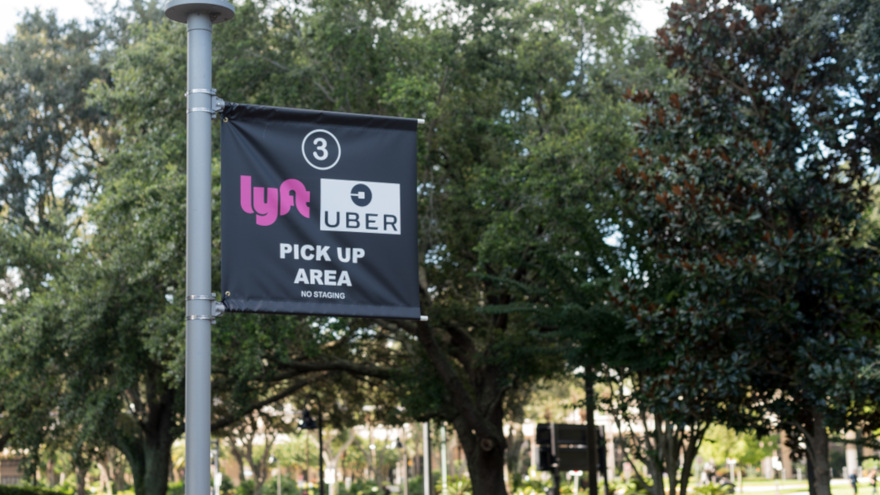As the company gears up to host FICO Auto Mastermind 2019 this week, Nick shared his conversations with a pair of FICO experts who were in San Francisco earlier this year for the Vehicle Finance Conference hosted by the American Financial Services Association.
FICO chief analytic officer Scott Zoldi described what clean data really is as FICO vice president of security solutions Doug Clare revisited the ongoing challenge of maintaining cybersecurity.
The full episode can be found below.
Download and subscribe to the Auto Remarketing Podcast on iTunes or on Google Play.
You can also listen to the latest episode in the window below.
Catch the latest episodes on the Auto Remarketing Podcast homepage and on our Soundcloud page.
Please complete our audience survey; we appreciate your feedback.
NACHA highlighted the ACH Network, an electronic payment system that safely and reliably moves tens of billions of payments annually, generated another milestone in 2018.
Officials indicated payment volume climbed by almost 1.5 billion payments, marking the fourth straight year the ACH Network has added more than 1 billion new payments.
NACHA said the ACH Network volume reached nearly 23 billion payments in 2018, a year-over-year increase of 6.9 percent and the highest growth rate since 2008. That’s nearly 70 payments for every person in the U.S.
The value of ACH payments in 2018 was $51.2 trillion, a 9.5-percent increase over 2017. It marked the sixth consecutive year in which the ACH payment value has risen by at least $1 trillion. For perspective, the value of last year’s ACH payments was more than two-and-a-half times that of the nation’s 2017 gross domestic product.
Officials went on to mention same-day ACH volume soared in 2018, the first full year with same-day debits as well as credits. There were nearly 178 million same-day ACH payments last year: 98.3 million credits and 79.7 million debits.
Overall, same-day ACH volume jumped 137 percent from 2017. Total same-day ACH value in 2018 was $159.9 billion, up 83 percent over the previous year.
“The results for 2018 make clear that the ACH Network is vibrant and continues to be a vital component of the nation’s economic engine,” NACHA chief operating officer Jane Larimer said.
“With more enhancements to same-day ACH being rolled out this year and next, the experience for businesses and consumers will only get better,” Larimer continued.
NACHA noted several core ACH use cases saw substantial growth in 2018 including:
• Business-to-business (B2B) payments rose 9.4 percent to 3.6 billion with a total value of $34.9 trillion.
• Direct deposits climbed 4.4 percent to 6.8 billion for total value of $9.7 trillion.
• Internet payments jumped 14.2 percent to 5.9 billion with a total value of $2.9 trillion.
• Payments from health plans to medical and dental providers increased 11.5 percent to 306.7 million with a total value of $1.59 trillion.
• Person-to-person (P2P) payments spiked 32.2 percent to 128.7 million for a total value $209.6 billion.
Technology Hyundai is already deploying in South Korea with its financial services enterprises might be a preview of what the OEM eventually brings to the United States.
During IBM Think, Hyundai Card and Hyundai Commercial, financial services subsidiaries of Hyundai and Kia Motors, announced they are working with IBM to advance their use of cloud-based artificial intelligence and blockchain technology with the aim of improving the customer experience and expanding its financial services business globally.
The news was shared on Wednesday during IBM Think 2019, IBM’s annual conference focused on technology and business.
For the first time in the Korean finance industry, Hyundai Card has introduced an AI-based chatbot for customer service. Named “Hyundai Card Buddy,” it can engage with customers to answer common questions quickly while freeing Hyundai professionals to handle more complex customer service needs.
The company said South Korea has some of the highest rates of Internet use than any other country in the world, so Hyundai Card Buddy is a natural way to improve clients’ digital experience. Hyundai Card Buddy has helped 1 million customers since it has launched, according to a news release.
The automaker explained the system continuously learns through interactions with users and by relying on natural language processing and machine learning technology from IBM Watson, Hyundai Card Buddy is able to understand hidden meaning, interpret client questions and provide answers and information to enhance the client experience and streamline customer service operations.
In addition, Hyundai Commercial, a corporate finance company that provides leasing and financial services for commercial vehicles and construction equipment, is collaborating with IBM to apply blockchain and modernize its business model.
Using the open source Hyperledger Fabric to create a new supply chain financing ecosystem for Hyundai Commercial, officials explained the network is designed to reduce lead times and costs in financial transactions among dealers, distributors and manufacturers.
Officials went on to mention the network for commercial financing will provide participants with a single view of all transactions happening in the network while automating manual processes and enabling transaction data to be securely managed and shared more efficiently.
“It’s almost impossible to fully understand or memorize the benefits, limits or conditions of a finance product. Customer services employees’ turnover rate and training cost is very high while the customers demand high quality service. So we introduced IBM Watson and it became a very powerful tool to help our employees and helped us to lower our employee turnover rate to less than 10 percent,” said Ted Chung, chief executive officer of Hyundai Card, Hyundai Capital and Hyundai Commercial.
Andrew Chang, general manager of IBM Korea, also discussed being involved in this technology project. IBM is a world leader in AI software, services and technology for business. IBM has deployed Watson solutions in thousands of engagements with clients across 20 industries and 80 countries.
“Korea enjoys a digital-first financial services industry in which the rapid adoption of technologies such as artificial intelligence, analytics, blockchain and cloud are improving the customer experience and helping expand into new opportunities,” Chang said.
“Working with IBM, Hyundai Card and Hyundai Commercial have pioneered these new technologies and have been a strong innovator in the industry,” Chang went on to say.
Here’s an example of how search engine optimization helped a vehicle-subscription app quickly cultivate a store-leading following.
AutoMotion announced on Wednesday that its Car Subscription app achieved initial consumer adoption, ranking in the top spot for car subscription shopping terms in the Apple App Store.
AutoMotion also highlighted consumer reception has been positive, with the app receiving an average user rating of 4.6 out of 5 starts.
“The team developing the car subscription experience has done an outstanding job, and it’s extremely exciting to see initial consumer usage and feedback,” AutoMotion director of operations Lindsay Fulton said. “We wanted to provide consumers a choice in how they obtain their next car. Car Subscription provides a transparent, complete look at flexible options available today.”
AutoMotion launched Car Subscription to help consumers learn about a new way to get a vehicle. The app uses the AutoMotion Get a Car experience in an attempt to personally match the right vehicle subscription service with a user’s needs.
Within the app, users are able to compare, review and locate car subscription vehicles nationwide. Fulton insisted the movement toward vehicle subscription continues to gain momentum with manufacturers releasing new programs each month.
“User feedback has been positive and constructive,” Fulton said. “The team is dedicated to put the best product in market possible, and we couldn’t do that without valuable feedback from our users.”
Car Subscription is a free platform for consumers available on the Apple App Store and Google Play Store. For more information about AutoMotion, visit http://www.automotionapp.com.
GBG, a U.K.-headquartered identity data intelligence specialist, recently announced that it has conditionally agreed to acquire IDology, a U.S.-based provider of identity verification and fraud prevention services.
The company said the all-cash transaction is for $300 million.
IDology is a fast-growing provider of identity verification services that is designed to help remove friction both in onboarding customers and in the detection of fraud. Officials highlighted its U.S. identity verification and fraud prevention services, led by its ExpectID product range, are the perfect strategic complement to GBG’s identity verification solutions.
“For the past 15 years, IDology has provided multi-layered identity verification. With the combination of IDology and GBG, we intend to innovate, delivering exceptional solutions for our customers, focusing on driving customer revenue and preventing fraud,” IDology president and chief executive officer John Dancu said.
“With GBG’s expertise in global data, we are all excited to expand our solutions and our trusted consortium network for customers across the globe,” Dancu continued.
GBG claims it can quickly validate and verify the identity and location of 4.4 billion people globally and accesses a breadth of data from more than 200 global partners to establish trust between businesses and their customers. Having completed 11 acquisitions since 2011, GBG’s $300 million acquisition of IDology is its largest to date.
GBG has seen strong growth in the U.S. market. Its existing U.S. identity business has grown organically with customers across technology, payments and retail verticals. Meanwhile, Loqate, its location intelligence solution, has offices in New York and San Francisco and has seen high demand from household names like Abercrombie and Fitch, Oracle and Nordstrom.
The acquisition will strengthen GBG’s broader portfolio and enhance the business’ product capability and customer reach.
The companies went on to mention GBG and IDology have a history of working together in partnership and share a similar culture with a strong emphasis on people and talent. IDology’s U.S. customer base currently accounts for 99 percent of its revenue, which will provide GBG with geographic scale and help to position GBG as a global leader in electronic identification verification.
“I am delighted to announce the acquisition of IDology. With attractive organic growth, significant synergies and a strong cultural alignment, this is a high-quality addition to GBG,” chief exeutive officer Chris Clark said. “The combination of IDology and GBG enables us to meet growing customer appetite for an identity verification provider with global capabilities and scale in key markets.
“We are excited by the compelling strategic rationale behind this acquisition,” Clark continued. “It enables GBG to quickly expand even further into North America, a key growth territory for the business. We have already built an exciting domestic presence in the U.S. with Loqate, our location proposition, and IDology now gives us an excellent platform for both identity verification and fraud prevention.
“The board and I look forward to the future success that we anticipate that our combined business can deliver,” Clark went on to say.
A recent survey conducted by TD Bank showed treasury and finance professionals anticipate more operational challenges in 2019 than in previous years.
And a separate analysis distributed by Frost & Sullivan highlighted that technologies such as machine learning, big data and blockchain will become prominent, especially as cybercrime becomes more sophisticated and even a method of warfare.
According to an endeavor orchestrated by TD Bank during the 2018 Association for Financial Professionals annual conference in Chicago late last year, the risk of payments fraud and cybersecurity topped professionals’ list of concerns with 44 percent naming it their top operational challenge. That response level presented a 14 percent year-over-year increase.
TD Bank found the ability to adapt to or process faster or electronic payments is an obstacle for 37 percent of survey respondents, also rising 14 percent year-over-year. The bank acknowledged this concern is likely to cause some anxiety for finance professionals, as commercial payments continue evolving.
In fact, the majority (60 percent) of respondents expect to see the largest amount of growth this year within faster or real-time processing, an 8 percent increase from last year.
Despite industry uncertainties, blockchain has benefits
Unsurprisingly, the TD Bank findings showed that technology continues to influence treasury operations, and the majority of survey respondents (90 percent) feel that blockchain/distributed ledger technology will have some type of positive effect on the payments industry.
The top impact of blockchain/distributed ledger technology is its ability to create stronger audit trails (29 percent), respondents said. Additional positive outcomes include:
— Speeding up the payments process (22 percent)
— Improving efficiency of cross-border payments (21 percent)
— Reducing payments fraud (18 percent)
“Blockchain technology has broad implications for the commercial payments space, from speeding up settlements to securing cross-border transactions,” said Rick Burke, head of corporate products and services at TD Bank.
“Even though much of the industry has a baseline understanding that blockchain can evolve and improve payments, the varied responses indicate that the technology’s specific capabilities and implications are still a great unknown for many finance professionals,” Burke continued.
Despite the hype around new innovations like blockchain, TD Bank found that finance professionals appear to be split on the use of another technology type to facilitate payments: open APIs.
Survey results showed 50 percent of respondents claim that their organization currently uses or is in the process of integrating open APIs into company operations, while 49 percent do not use open APIs, and nearly a quarter of that group does not have plans to do so in the future.
With so much change on the horizon, TD Bank’s survey uncovered that companies are investing in training strategies for several facets of treasury operations. Survey respondents said their organization has training strategies specifically for data and analytics (45 percent), AI and automation (26 percent) and blockchain (14 percent).
Fraud casts a larger cloud
As the risk of payments fraud and cybersecurity threats is top of mind across the industry, TD Bank learned that there comes an expectation from 98 percent of respondents that financial institutions should assist organizations with protecting against fraud and cybercrime.
More than half (55 percent) said financial institutions can help them better protect against fraud and cybercrime through education — although 48 percent of respondents admitted that their company does not have any in-house cyber fraud prevention training.
Additionally, TD Bank said one in four finance professionals surveyed feel that banks should offer greater controls on transactions, and 18 percent state they want risk or process reviews.
“As global fraud and cybersecurity incidents continue to rise, corporations recognize the need to bolster their protective measures and improve employee understanding of how to safeguard finances,” Burke said.
“To achieve real success, organizations and their employees need to be better able to identify and deter fraud attempts. This should be a responsibility shared by businesses and their financial institutions, beginning with better education,” he went on to say.
TD Bank polled finance professionals at the 2018 AFP Conference held last November in Chicago. A total of 406 responses were collected from industry professionals, including business end-users and financial and technology services organizations.
More discussion about machine learning and blockchain
Experts at Frost & Sullivan highlighted that machine learning aids early detection of anomalies, while blockchain creates a trustworthy network between endpoints,
The firm also pointed out the rise of the Internet of Things (IoT) has opened up numerous points of vulnerabilities, compelling cybersecurity companies, especially startups, to develop innovative solutions to protect enterprises from emerging threats.
“Deploying big data solutions is essential for companies to expand the scope of cybersecurity solutions beyond detection and mitigation of threats,” Hiten Shah, a research analyst at TechVision, said in the Frost & Sullivan report available here.
“This technology can proactively predict breaches before they happen, as well as uncover patterns from past incidents to support policy decisions,” Shah continued.
Frost & Sullivan’s recent analysis titled, “Envisioning the Next-Generation Cybersecurity Practices,” presents an overview of cybersecurity in enterprises and analyzes the drivers and challenges to the adoption of best practices in cybersecurity. It also covers the technologies impacting the future of cybersecurity and the main purchase factors.
“Startups need to make their products integrable with existing products and solutions as well as bundle their solutions with market-leading solutions from well-established companies,” Shah said. “Such collaborations will lead to mergers and acquisitions, ultimately enabling companies to provide more advanced solutions.”
Frost & Sullivan explained that technologies that are likely to find the most application opportunities include:
— Big data: It can enable automated risk management and predictive analytics. Experts think its adoption will be mostly driven by the need to identify usage and behavioral patterns to help security operations spot anomalies.
— Machine learning: It can allow security teams to prioritize corrective actions and automate real-time analysis of multiple variables. Using the vast pools of data collected by companies, machine learning algorithms can zero in on the root cause of the attack and fix detected anomalies in the network.
— Blockchain: The data stored on blockchain cannot be manipulated or erased by design. Experts explained the tractability of activities performed on blockchain is integral to establishing a trustworthy network between endpoints. Furthermore, the decentralized nature of blockchain greatly increases the cost of breaching blockchain-based networks, which can discourage hackers.
GM Financial is enhancing its efforts to ensure the individuals signing contracts with the captive are in fact who they say they are.
This week, GM Financial announced its collaboration with Spring Labs as part of its Spring Founding Industry Partners (SFIP) Program, which is geared to drive improved data management standards to help address critical auto finance industry issues like identity verification and synthetic identity fraud.
The SFIP program brings together financial institutions, data furnishers and technology partners to collaborate on research, development and implementation of Spring Protocol, the company’s blockchain technology network, prior to its public launch. Ultimately, this network is designed to transform how information and data are shared globally.
“As the captive finance arm for General Motors and one of the world’s largest auto finance providers, we are continually innovating and evolving our fraud prevention and detection capabilities to better serve and protect our customers and dealers,” said Mike Kanarios, chief strategy officer at GM Financial.
“Today’s announcement underscores our commitment and investment to advance these efforts, and we are pleased to collaborate with Spring Labs as a member of the SFIP program,” Kanarios continued.
Spring Labs chief executive officer Adam Jiwan added, “We are excited to partner with GM Financial to create solutions on our developing network to address vexing economic problems such as identity fraud.
“We look forward to announcing additional significant partnerships in due course,” Jiwan went on to say.
Editor’s note: More details about what’s happening at GM Financial will be showcased in an upcoming episode of the Auto Remarketing Podcast, featuring Kyle Birch, who is the company’s executive vice president and chief executive officer for North America. Previous episodes are available here.
LMP Automotive Holdings (LMP) and DriveItAway are working together to get vehicles to drivers who are working for Uber and Lyft.
LMP has made its vehicles available on the DriveItAway platform to Uber and Lyft drivers in Florida. DriveItAway is a unique “one-stop” shared mobility application for dealers. DriveItAway App users can now subscribe to or rent new and pre-owned vehicles from LMP directly through the app. The drivers can now pick up and swap vehicles they subscribe or rent from LMP at any of its Florida locations.
“The Mobility-as-a-Service market is rapidly emerging and estimated to grow to approximately $358 billion by 2025 as compared to $38.6 billion in 2017, according to Research and Markets,” LMP Automotive Holdings chief executive officer Sam Tawfik said.
“We are pleased to contribute to the emergence of this industry in the automotive sector by offering DriveItAway users variety from our selection of new rideshare vehicles and convenience in the southern Florida region directly through the application,” Tawfik continued.
“We look forward to working with the DriveItAway team, continuing to build our brand in Florida as well as other regions and establishing long-term customer relationships,” Tawfik went on to say.
During the Vehicle Finance Conference hosted by the American Financial Services Association this past January in San Francisco, Nick had the opportunity again to sit down with Kyle Birch, executive vice president and chief operating officer for North America at GM Financial.
The wide-ranging conversation covered not only how GM Financial performed in 2018, but also how the captive is leveraging both people and technology to be successful.
The podcast discussion can be found below.
Download and subscribe to the Auto Remarketing Podcast on iTunes or on Google Play.
You can also listen to the latest episode in the window below.
Catch the latest episodes on the Auto Remarketing Podcast homepage and on our Soundcloud page.
Please complete our audience survey; we appreciate your feedback.
How fintech is going to be the technological solder that binds dealerships, finance companies and consumers into an even stronger relationship permeated discussions at a host of annual automotive events late last month in San Francisco.
Cherokee Media Group is looking to continue that dialogue in a more intimate conference setting when it again hosts the Automotive Intelligence Summit, which aims to give leading experts in the auto fintech space the opportunity to reinforce the need for collaboration to strengthen current revenue streams and open new ones.
“Last summer’s first Automotive Intelligence Summit poured a great foundation for industry dialogue we heard for the remainder of 2018 and into the opening portion of this year,” Cherokee Media Group president Bill Zadeits said. “And we want this year’s Summit to extend that conversation where dealerships, finance companies, fintech entrepreneurs, investors and related experts all can let their voices be heard in an interactive setting that delivers more than just talking points, but also tangible strategy to lift the entire industry.”
The Automotive Intelligence Summit again will be in Raleigh, N.C., in the heart of North Carolina’s Research Triangle. Nestled among some of the most successful technological companies and leading universities, attendees will be gathering in the Tar Heel State capital on July 23-25 for a mix of keynote presentations and networking opportunities.
Last year, experts from an array of successful firms participated, including:
— Ally Financial
— Cox Automotive
— defi SOLUTIONS
— DRN
— Experian
— EY
— Fair
— Hudson Cook
— IBM
— IHS Markit
— KAR Auction Services
— Maryann Keller and Associates
— National Automobile Dealers Association
— SAS
These leading authorities shared not only what’s happening within their shops, but also provided projections about ways fintech might influence how dealerships and finance companies gain new customers as well as retain current ones.
Cherokee Media Group is already accepting applications to speak this summer’s event. Applications can be completed here.
“We are looking to provide the platform for the most innovative companies, experts and executives to showcase what is going to impact our businesses so the industry can remain nimble and address potential challenges,” Zadeits said.
“We all know fintech development is in constant motion,” he continued. “The Automotive Intelligence Summit will provide a pathway for growth for the remainder of 2019 and beyond.”
For more details about the Automotive Intelligence Summit, go to www.autointelsummit.com.












